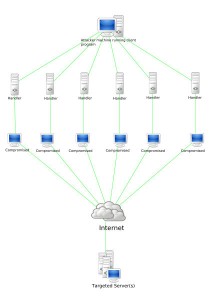Thanks to the Southgate ARC for bringing this to my attention:
The radio this reporter demonstrates is a shortwave version of the Eton FR160.
Tag Archives: Why Shortwave Radio
Zimbabwe: door-to-door search for radios
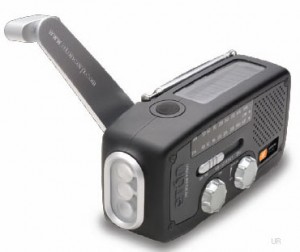 (Source: SW Radio Africa)
(Source: SW Radio Africa)
On Friday police in Rusape went door-to-door to houses belonging to known MDC-T supporters, in search of shortwave radios. But the MP for Makoni South said they found nothing.
Pishai Muchauraya said the morning raids saw police officers go in groups of three to MDC-T homes in Gandanzara, ‘demanding radios distributed by Pishai.’
[…]Last week the police ordered a ban on the possession of shortwave radios, saying they are being used to communicate hate speech ahead of next month’s constitutional referendum and elections set to be held later this year.
Wind-up, solar-powered radios sets have been distributed by some NGOs to rural communities, where villagers have established listening clubs to tune in to popular independent stations such as Studio 7 and SW Radio Africa. The broadcasts are produced by experienced exiled Zimbabwean journalists based in Europe and the US.
Read the full report on the website of clandestine radio station, SW Radio Africa.
China appears to be jamming the BBC World Service (and the SWLing Post)
No doubt, in publishing this, The SWLing Post will be hit with another barrage of denial-of-service attacks. If you notice the site loading slowly, or completely off-line for periods of time in the near future, you’ll know why…
A few weeks ago I mentioned various upgrades to the SWLing Post web server. Part of this is due to our increased traffic and part is due to the fact that we were moving to a more secure server.
You see, recently I posted an article with a recording of Firedrake along with a follow-up from Post reader, Mark. Two days later, The SWLing Post was hit with denial-of-service attacks from IP addresses, all of which appeared to originate from China. It almost brought the whole server down–however, my intrepid web host, CloudWeb, scrambled to block the offenders, and they did an amazing job. You may note that I had to temporarily remove the Firedrake posts (they’ve since been re-published). I don’t consider this to be a conciliation, but rather a victory: for free speech, and for its power on shortwave radio.
Anyone who follows the SWLing Post with regularity will know that I’m a strong believer in access to and freedom of news and information, so I’m a bit annoyed by the DoS attacks that attempt, however unsuccessfully, to mute our voice in China and throughout the world. No doubt, The SWLing Post is already behind the “great” firewall, anyway.
If our site does go down, follow our updates on Twitter and Facebook.
With that preamble behind me, I owe my thanks to Andy Sennitt for bringing this article to my attention:
 (Source: Reuters)
(Source: Reuters)
Radio broadcasts in English from the BBC World Service are being jammed in China, the British broadcaster said on Monday, suggesting the Chinese authorities were behind the disruption.
“The BBC strongly condemns this action which is designed to disrupt audiences’ free access to news and information,” the BBC said in a statement.
China, which enforces strict restrictions on its domestic media, has been accused by several prominent foreign media of seeking to stop their news reports reaching Chinese audiences.
“The BBC has received reports that World Service English shortwave frequencies are being jammed in China,” said the London-based public service broadcaster.
“Though it is not possible at this stage to attribute the source of the jamming definitively, the extensive and coordinated efforts are indicative of a well-resourced country such as China.”
A duty officer at China’s foreign ministry had no immediate comment.
[…]”The jamming of shortwave transmissions is being timed to cause maximum disruption to BBC World Service English broadcasts in China,” said Peter Horrocks, director of BBC Global News.
“The deliberate and coordinated efforts by authorities in countries such as China and Iran illustrate the significance and importance of the role the BBC undertakes to provide impartial and accurate information to audiences around the world.”[…]
For more stories like this, follow our tag: Why Shortwave Radio?
Media Institute of Southern Africa reacts to Zimbabwe shortwave receiver ban
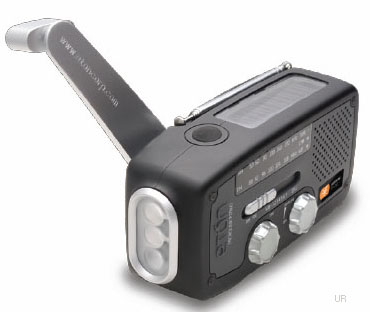
The shortwave Eton Microlink FR160 is one of the noted “specially-designed radios” capable of receiving international broadcasts (like those from the Voice of America) which might compete with state-owned stations.
International broadcasters (and those cutting their budgets) should ask themselves the following question:
If shortwave radio is no longer relevant in today’s high-tech world, why are these radios suddenly being banned in a country controlled by a repressive regime?
The government of Zimbabwe apparently fears the little self-powered shortwave radio you see on the right. —>
Read the Media Institute of Southern Africa’s reaction to the radio ban in the Huffington Post:
(Source: Huffington Post)
Media freedom campaigners said Friday police in Zimbabwe are breaking the law by seizing and banning small radio receivers that can tune in to stations not linked to the state broadcasting monopoly controlled by President Robert Mugabe’s party.
The Media Institute of Southern Africa said Friday no regulations outlaw the hand-cranked, solar powered radios that democracy and election support groups plan to use ahead of a referendum on a new constitution next month and crucial elections later in the year. Police insist the radios and cheap Chinese 3G smartphones with GPS capability are being supplied by “subversive organizations” and pose a security threat surrounding the polling.
[…]”The importance of a radio set cannot be overemphasized as it is a generally affordable legal gadget used for receiving information by the public,” the group said.
Police efforts to “criminalize the distribution and possession of the radio sets” infringed citizens constitutional rights to freedom of expression and basic civil liberties,” it said.
Such radios and other equipment were seized in recent police raids on the Zimbabwe Peace Project, a human rights group that monitors political violence, and the independent Zimbabwe Election Support Network.
Police allege those and other groups were planning to mobilize “recruits” with unauthorized communications devices in rural districts across the country, traditionally voting strongholds of Mugabe’s party.
The Elton [Eton, actually] Microlink radio, at a cost of about $30, has channels able to receive Voice of America broadcasts beamed in from neighboring Botswana and shortwave broadcasts on Zimbabwe from Europe.
The state Zimbabwe Broadcasting Corp. has four radio stations fiercely loyal to Mugabe. State and independent newspapers are not commonly found in impoverished rural districts where communities rely for information on radios only receiving state radio and powered by batteries that are often in short supply.
Police warned this week that the activities of some Western-backed non-governmental organizations and rights groups now verged on espionage. People found in remote areas with the cited devices could face arrest.
They said the “specially designed radios are not compatible with state-owned radio stations” and could inflame election tensions by promoting hate speech.[…]
Zimbabwe: are shortwave radios now illegal?
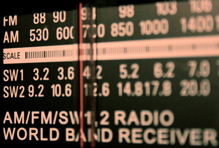 According to SW Radio Africa, it appears that shortwave radios could now be considered “illegal communicating devices” in Zimbabwe:
According to SW Radio Africa, it appears that shortwave radios could now be considered “illegal communicating devices” in Zimbabwe:
Police have announced a ban on ‘specially designed radios’ that are ‘not compatible with state owned stations’, claiming the devices would be used to communicate hate speech ahead of polls scheduled for this year.
In a move seen as an attempt to silence external radio stations, such as SW Radio Africa and VOA’s Studio 7, broadcasting to Zimbabwe via shortwave and medium wave, police spokesperson Charity Charamba threatened to deal with organizations that helped to distribute portable radios, saying recipients would also be arrested.
She told journalists at a press conference in Harare on Tuesday: “We have information that some people or political parties are engaging in illegal activities, that is to say they are distributing illegal communicating devices to unsuspecting members of the public.
“We strongly believe that the intentions of such people are not holy but meant to create and sow seeds of disharmony within the country, especially now that the country is about to embark on the referendum and harmonised elections.”
The shocking news comes as police upped their onslaught on civil society organization looking for subversive material, gadgets and recordings.
[…]Co-Home Affairs Minister Teresa Makoni revealed [..]that […] receivers only, without ability to transmit, are perfectly legal and that there is no law at present which disallows anyone donating radios to the public.
However the minister said she held lengthy discussions with Police Commissioner General Augustine Chihuri, who said he is concerned that NGOs always intensify distribution just before elections.
Makon[i] said: “I was very clear that airwaves are still restricted to other parties, that is why my party is distributing radios to our poor rural members…in the meantime he will have his engineers verify that the radios are simple receivers.”
Observers say this response ignores the fact that there is likely to be massive intimidation as the average police officer will not know the difference between a receiver and two-way radio communicators.
Click here to read Violet Ganda’s full report on SW Radio Africa.
Thanks, Rich, for bringing this to my attention.
The relevance of shortwave radio for UNESCO’s World Radio Day 2013
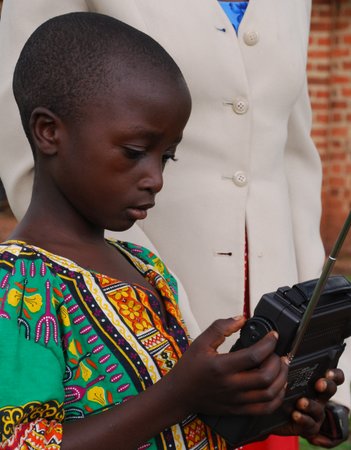
Student in Uganda tunes an Ears To Our World self-powered shortwave radio. (Photo: ETOW partner, The Empower Campaign, Uganda)
Wednesday, February 13th 2013 is World Radio Day. UNESCO describes World Radio Day as “a day to celebrate radio as a medium; to improve international cooperation between broadcasters; and to encourage major networks and community radio alike to promote access to information and freedom of expression over the airwaves.”
A worthy cause.
UNESCO asked me to record a segment about our non-profit, Ears To Our World, and the relevance of radio in honor of World Radio Day.
“The era of short-wave radio is behind us” and other inaccuracies from the new RNW
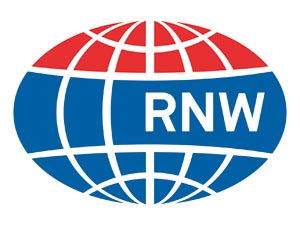 RNW announced “A new Radio Netherlands Worldwide” just yesterday on their website; here is their announcement in its entirety (my comments follow).
RNW announced “A new Radio Netherlands Worldwide” just yesterday on their website; here is their announcement in its entirety (my comments follow).
<><><><><><>
“This coming year is an important one for RNW. A year in which, at the age of 65, we will be reinventing ourselves. Our new Editor-in-Chief William Valkenburg officially begins today; he looks to what lies ahead of us in 2013.
“The era of short-wave radio is behind us; satellite and Internet are the communication channels of the future. The worldwide dissemination of information is no longer the exclusive domain of specialised broadcasters. Via internet, anyone anywhere can reach out to the world with a good story.
“That doesn’t mean journalists and broadcasters are redundant; quite the contrary in fact. Huge amounts of information are available more and more quickly and via all sorts of different channels. The need to filter, analyse and investigate all this information remains the same while the goalposts of journalism have moved completely.
Active link
“Our public is no longer a passive audience that very occasionally might write us a letter, but an active link in the process of newsgathering and distribution. Our public engages actively in discussion and has stories that are worth telling. They help us filter by letting us know what is or isn’t relevant to them. And via social media, our public spreads our best stories further abroad.“RNW will have to forge a strong and unique identity if we are to win a place as a visible force in the new media landscape. Focus and specialisation are key. Free access to information, freedom of expression, good governance, and civil and sexual rights are the pillars of the new RNW: universal themes we’ll be tackling with an individualistic Dutch approach. We’ll be focusing our work in areas where freedoms are limited and aiming to appeal to a younger generation that is increasingly tuned in to new media.
New stories
“2013 is Year Zero for the new-look RNW. A year in which we’ll be looking more than ever to strengthen cooperation with our partners and audiences in China, Latin America, Africa and the Arab world. A year in which we’ll be actively looking for new ways to find and tell the stories that are important to our audience, and in which our audiences will be encouraged to play an ever more active part. A year in which we’ll be pushing ourselves to cement the ties with our audience and our themes. A year, in short, of dialogue and renewal.”
<><><><><><>
And, unfortunately, of short-sighted misstatements and errors. No doubt, SWLing Post readers know how we feel about this–it’s a recurrent theme in many of our posts.
Shortwave is not behind us, but RNW’s ability to listen may be.
As a shortwave radio broadcaster, RNW arguably had a dedicated listener pool in the millions. Of course, it’s hard to know, because those living in poverty and those living under repressive regimes–millions of listeners–who lack free internet access and whose free speech is regularly quelled, don’t have the ability to cry out, “We’re listening–!”
Millions of ears are still tuned to the static you recently vacated. Outreach in all forms–even via shortwave–is vital, and communication with those still without Internet or freedom (or the voices to tell you so) is a form of diplomacy more valuable than any money spent to achieve it.
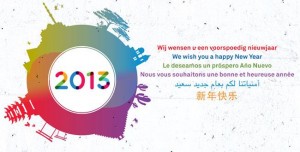 Perhaps host of the previous RNW’s acclaimed program The State We’re In, Jonathan Grubert, had a point when Jonathan Marks interviewed him on the night of RNW’s final shortwave broadcast. Marks asked if RNW had stayed on shortwave too long, to which Grubert responded by saying, “Yeah, I think Radio Netherlands stayed on shortwave too long.” I think Grubert believed that RNW had remained faithful to shortwave at the expense of resources required for other contemporary and future media. And at the expense of their future.
Perhaps host of the previous RNW’s acclaimed program The State We’re In, Jonathan Grubert, had a point when Jonathan Marks interviewed him on the night of RNW’s final shortwave broadcast. Marks asked if RNW had stayed on shortwave too long, to which Grubert responded by saying, “Yeah, I think Radio Netherlands stayed on shortwave too long.” I think Grubert believed that RNW had remained faithful to shortwave at the expense of resources required for other contemporary and future media. And at the expense of their future.
As much as we hate to admit it, he was probably correct…in part. The fact is, the previous incarnation of RNW should have focused on making their shortwave broadcasting arm more lean and efficient, in order to continue to target parts of the world that need it most, while diversifying their media delivery systems to include the Internet, satellite and wireless in all forms. Instead, the organization failed to adapt, and funds were cut completely, leaving RNW gutted. But the lesson is apparently not learned: the new but-not-proved RNW seems to be putting all its eggs in one (Internet) basket, as well.
Indeed, this is the problem with shortwave broadcasting in general. Many broadcasters developed their transmission infrastructure either during WWII or in the Cold War, when countries were willing to invest vast sums of money in order to have their national voice heard. Broadcasting sites were never intended to be efficient: resources were either cheaper when the services were initiated or efficiency simply was not a concern in the days before fiscal cliffs.
Today, it’s true that shortwave radio is on the decline in many parts of the world, particularly first-world countries. In the great pie chart that represents all of the content delivery systems an international broadcaster has at their disposal, the shortwave slice should be thinner, while Internet and wireless-based systems must also be included. Diversification is key. Indeed, I would also argue that a small, separate slice of the budget should be reserved for future HF content delivery systems–such as innovations that are based upon the shortwave radio medium and existing infrastructures. We’d like to think that many are doing this now. After all, shortwave is still the only international communications medium that is resilient to jamming and thus to censorship.
What’s obvious is that shortwave is still highly relevant to those who rely on it, just as the Internet is crucial to the future of international broadcasting. There’s a false dichotomy in the “shortwave vs Internet” argument, and broadcasters and the governments that support them are fooling themselves if they think cutting shortwave will lead to their fiscal salvation and a promised future in new media technologies. One might as well argue the relative merits of wealthy versus poor, or of first world nations versus third because that’s where the divide takes place…Does the former have more “right” to information than the latter? “Free access to information, freedom of expression, good governance, and civil and sexual rights are the pillars of the new RNW.” Already, the first “pillar” of RNW is crumbling under its complete dismissal of shortwave–a tested and effective international content delivery system that requires no subscription and streams at the speed of light.
We found at least this statement from their announcement to be accurate:
“RNW will have to forge a strong and unique identity if we are to win a place as a visible force in the new media landscape…”
In order to achieve this goal–namely, to actively engage a global audience on the “new” world wide web–RNW will need spectacular content created by exceptional talent–much like they had only last year, that is, before they incomprehensibly severed it. As much as we want to believe that Radio Netherlands will continue to have something to contribute to the media landscape after shutting down their shortwave service and gutting their resource pool of talented and dedicated journalists, we’re deeply, profoundly skeptical. To say the least.
Why? They’re nearly two decades late to this game. Obviously, the Internet is no longer a “new” media landscape; it’s absolutely saturated with content and communications innovations. RNW has dispensed with the one thing they might have brought to the Internet–their programming. Once we learned that RNW was going to cut The State We’re In–an award-winning program, arguably RNW’s most popular–we knew RNW wasn’t making logical goal-based decisions to mark their place in future media. RNW’s claim that it will “forge a strong and unique identity” in the face of cutting all that made it respectable, listener-worthy and unique, shows a decided lack of judgement…a lack of direction.
RNW, no one is going to listen if you’ve nothing worth hearing. We hope you can find what you’ve lost–your talent, on the one hand, and millions of listeners, on the other. Connected via radio.

